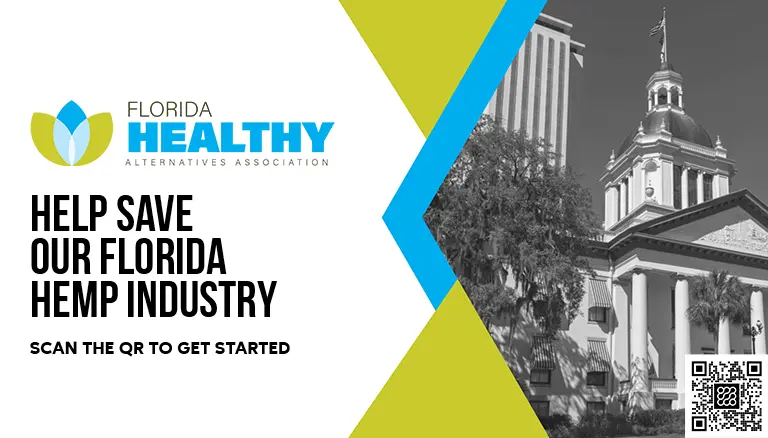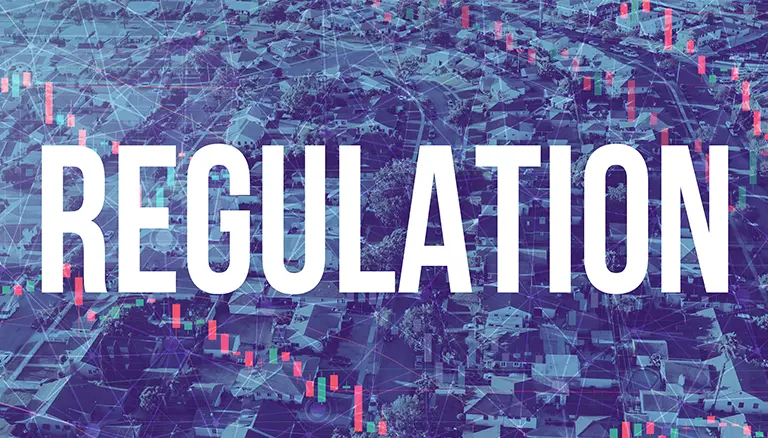Bills introduced on Friday by Republican lawmakers in the Senate and the House seek to classify hemp extract as food.
Two bills filed by Florida Republicans in the House and the Senate, SB 1676 and HB 1475, aim to define hemp extract as food. The bills, filed by Sen. Colleen Burton and Rep. Will Robinson, would provide clarity on legislative intent regarding the plant and its derivatives. The bills include a definition of hemp extract as “a food that requires time and temperature control for safety and integrity of the product.” If passed, these bills would provide a legal framework for the production and sale of hemp extract products in Florida.
In addition to defining hemp extract as a food, the proposed legislation aims to distinguish between hemp derivatives and marijuana by stating that compliant hemp derivatives are not classified as controlled substances. The legislation also sets a threshold for the amount of Delta-9 tetrahydrocannabinol (THC), the psychoactive compound in cannabis, allowed in hemp derivatives at no more than 0.3% on a wet-weight basis. This threshold aligns with the federal standard established in the 2018 Hemp Bill.
The bill language not only covers products that are typically considered food, but also extends to items like snuff, chewing gum, and smokeless products that contain or are derived from hemp. However, the bill explicitly excludes synthetic cannabinoids, which are defined as products that are artificially infused with cannabinoids not found organically in the plant through the use of acids or other solvents.
The proposed legislation also includes a requirement that products be manufactured in a facility with a “current and valid permit” issued by a regulatory entity. Additionally, the facility must provide a report confirming that it meets baseline requirements for production, ensuring that the products are safe for consumption. This measure seeks to establish guidelines that ensure quality control measures are in place during production to minimize any potential health risks associated with consuming hemp extract.
The bill also lays out requirements for containers. It mandates that the containers used to package hemp extract products should be “suitable to contain products fit for human consumption.” Additionally, the containers must mitigate exposure to light and high temperatures. The legislation also states that the packaging material must not be designed to be “attractive to children,” which is consistent with the packaging requirements in the state’s medical cannabis program. Moreover, the containers cannot contain more than 2 milligrams of THC, which is an attempt to close a loophole that currently exists.
The legislation requires that the Florida Department of Agriculture and Consumer Services, the regulatory body for the state’s hemp program, draft rules that are consistent with the proposed legislation, should it be enacted into law. The effective date of the law, if it is signed by Gov. Ron DeSantis, would be July 1. This would give the department several months to develop and promulgate any necessary rules before the law takes effect.
Public & Industry Response
As the Florida legislature considers new regulations that could have a major impact on the hemp industry, some companies are taking action to protect their businesses. Leading brands in the space are already pledging funds and urging others to join in the effort to raise a total of $1,000,000 by March 10th. With contributions from various companies, the movement to maintain current regulations is gaining momentum.
However, concerns about the impact of the new rules are growing. Anonymous discussions in industry communities suggest that retailers could lose anywhere from 30% to 80% of their business, potentially leading to layoffs, defaults on mortgages, and other financial hardships for thousands of families across Florida.
Another important aspect of this story is the fact that the state has allowed a thriving industry to develop around minor cannabinoids, which now supports a vast network of commercial leases, vehicle notes, and both residential and commercial mortgages. If regulations change and demand for these products drops, the consequences could be dire for many families and businesses.
There’s also the question of tax revenue. If consumers can’t find the products they want through legal channels, they may turn to the black market instead. This would mean lost tax revenue and a missed opportunity for the state to benefit from the economic activity generated by the hemp industry. As lobbyists and other stakeholders work to shape the final legislation, it’s critical that decision-makers understand the impact of their choices on the people and businesses they serve.
Recent Hemp Industry News
Since the cannabis industry continues to grow and evolve, regulatory agencies such as the DEA have expressed concern over the proliferation of synthetic cannabinoids, including THC-X. While THC-X is currently legal in the United States, its legal status may not be assured for long. Some states have sought to regulate THC-X and other synthetic cannabinoids, while others have not yet taken action. As the regulatory landscape continues to shift, it’s important for individuals and businesses involved in the cannabis industry to stay informed and aware of any changes that may impact their operations. Understanding the legal and regulatory environment is essential for success and compliance.
What Can You Do to Help?

If you’re concerned about the proposed bills in Florida and other states that threaten the legal status of hemp-derived products, there are steps you can take to help keep them from becoming law. One organization that is actively fighting against these bills is the Florida Healthy Alternatives Association (FHA).
FHA is dedicated to stopping the Healthy Alternatives Ban Bill and protecting Floridians’ rights to healthy alternative products. According to their website, SB 1676 and HB 1475 are two of the most dangerous bills Florida has seen when it comes to overregulation of healthy alternatives. These bills would ban hundreds of legal products in Florida and destroy thousands of jobs and small businesses overnight.
To help support their efforts, you can donate to FHA or become a member. All donations and membership fees go towards funding their team of lobbyists, grassroots advocates, and PR professionals who are working tirelessly to keep Big Government out of YOUR health options.
Aside from supporting organizations like FHA, you can also contact your local representatives and let them know your concerns about these bills. By raising awareness and expressing your opposition to these measures, you can help make a difference in protecting the future of the hemp industry and your access to healthy alternatives.
Developments in Other States

As the hemp-derived cannabinoid industry continues to grow, states across the country are grappling with how to regulate and manage this emerging market. With new bills being introduced that aim to ban or restrict the production and sale of hemp-derived cannabinoids, it’s important to take a closer look at the key states that will be most affected by these changes. In this section, we’ll explore the impact that these bills could have on the industry in states like Colorado, Virginia, and beyond, and what it could mean for the future of the hemp-derived cannabinoid industry.
Virginia Economic Impact
More states consider legislation that could impact the hemp industry, the Virginia Cannabis Association is urging Governor Glenn Youngkin to take a closer look at two bills recently passed by the General Assembly. HB2294 and SB 903 would regulate hemp-derived synthetic products containing THC, but the Virginia Cannabis Association warns that the bills could have unintended consequences, including the elimination of the state’s thriving hemp industry. The bills would require businesses selling industrial hemp extracts or food containing these extracts to obtain a permit, with a limit of 0.3% THC or two milligrams of THC per package. With the potential to severely impact the industry, the Virginia Cannabis Association is advocating for a review of the legislation to ensure the hemp industry’s continued success.
The “An Economic Impact Analysis of Cannabinoid Retail in Virginia” Report highlights the economic impact of hemp-derived cannabinoid retail in Virginia, estimating total sales in 2022 to be $1.2 billion and employing around 4,263 workers with annual wages exceeding $161 million. The supply chain that supports Virginia cannabinoid retailers extends throughout the United States and has an estimated economic impact of $2.5 to $3.3 billion. The proposed legislation to ban the sales of hemp-derived converted or synthetic cannabinoid products would have a negative economic impact on Virginia, displace thousands of workers, close 371 businesses, and essentially force the transfer of an additional 64 businesses out of Virginia and into other states. Whitney Economics recommends supporting the transition from a self-regulated industry to one that is regulated at the product level instead of an outright ban.
Colorado Economic Impact
In May 2021, the Colorado Department of Public Health and Environment (CDPHE) issued a policy statement that aimed to ban the sale of synthesized or converted cannabinoids to consumers in Colorado. Additionally, a bill from the 2022 General Assembly session was proposed to ban the sale and manufacture of converted cannabinoids, but it was later revised to require a task force to research and discuss the issue and make recommendations to the state legislature. Currently, there is a debate within Colorado state agencies regarding the legality of hemp-derived cannabinoid manufacturing within the state.
Colorado’s hemp-derived cannabinoid manufacturing industry is a major contributor to the state’s economy, with an estimated total sale of $527.3 million in 2022, growing to $815.9 million in 2023. The industry employs around 2,600 workers and pays over $136 million in annual wages. The supply chain to support Colorado’s manufacturing extends throughout the US, with an economic impact of $1-2 billion. However, a proposed ban on the manufacturing of hemp-derived converted or synthetic cannabinoid products would have a negative economic impact on the state, displace workers, and risk over $205 million in investments. The ban would also disrupt the hemp supply chain throughout the US and beyond, impacting supply chains across the country and internationally. Instead, Whitney Economics recommends supporting the transition to a regulated industry at the product level, as a complete ban is not economically justifiable.
Let’s Take a Stand – Together

The proposed bills in Florida, SB 1676 and HB 1475 are expected to have a significant impact on the state’s hemp industry if passed. The bills aim to define hemp extract as a food, set a threshold for the amount of Delta-9 tetrahydrocannabinol (THC) allowed in hemp derivatives, and establish guidelines for the production and sale of hemp extract products. While some companies are taking action to protect their businesses, concerns about the impact of the new rules on retailers, families, and businesses are growing. As the regulatory landscape continues to shift, it’s essential for individuals and businesses involved in the cannabis industry to stay informed and aware of any changes that may impact their operations. There are steps that concerned individuals can take to help keep these bills from becoming law, such as supporting organizations like the Florida Healthy Alternatives Association (FHA). Ultimately, it’s critical that decision-makers understand the impact of their choices on the people and businesses they serve.
